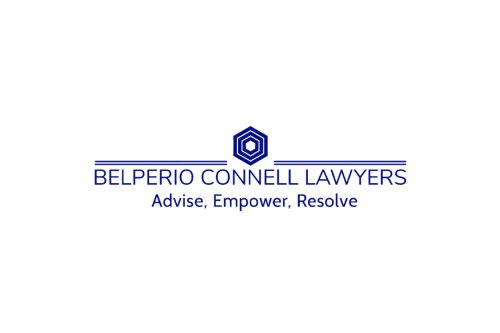Best Communications & Media Law Lawyers in Adelaide
Share your needs with us, get contacted by law firms.
Free. Takes 2 min.
List of the best lawyers in Adelaide, Australia
About Communications & Media Law in Adelaide, Australia
Communications & Media Law in Adelaide, Australia encompasses a wide range of legal issues related to the regulation of telecommunication systems, broadcasting, print media, digital media, and information technology. This area of law is designed to ensure that communications and media entities comply with statutory regulations, protect intellectual property, and uphold ethical standards regarding the dissemination of information. Given the rapid evolution of digital media, the legal landscape in this field is dynamic, requiring practitioners to stay adept with both national legislations and local standards in South Australia.
Why You May Need a Lawyer
There are several scenarios where individuals or businesses might seek legal assistance in Communications & Media Law in Adelaide:
- Defending or pursuing defamation claims concerning inaccurate media reports.
- Negotiating or drawing contracts with broadcasters, publishers, or digital platforms.
- Resolving licensing disputes for telecommunication services.
- Ensuring compliance with advertising standards and restrictions.
- Protecting copyright and intellectual property rights for digital content.
- Handling issues relating to privacy invasion through media channels.
Local Laws Overview
Adelaide, being part of South Australia, adheres to both federal and state laws governing Communications & Media. Key legal frameworks to consider include:
- Broadcasting Services Act 1992: Governs the broadcasting service industry in Australia, focusing on content standards, licensing, and regulatory controls.
- Telecommunications Act 1997: Covers the regulation of telecommunication services and the rights and obligations of carriers.
- Australian Privacy Principles (APPs): A set of rules under the Privacy Act 1988, addressing how personal information should be handled by organizations.
- Defamation Act 2005 (SA): Provides the basis for defamation law with particular rules and standards relevant to South Australia.
- Australian Communication and Media Authority (ACMA): A statutory authority with regulatory roles over TV, radio, and telecommunications in addition to internet protocols.
Frequently Asked Questions
What is Communications & Media Law?
It is a legal field focusing on the regulation of telecommunications, broadcasting, print, and digital media, as well as issues of privacy, defamation, and censorship.
How can I protect my intellectual property in the media?
Engage a lawyer to safeguard your IP rights through copyrights, trademarks, or patents to ensure proper licensing and enforcement mechanisms are in place.
What steps can I take if I’m defamed by a media outlet?
Contact a lawyer experienced in defamation law immediately to evaluate your case, issue demands for retraction or apology, or to commence legal proceedings.
What do I need to start a broadcasting service?
You will need to apply for a broadcasting licence through ACMA and comply with content and advertising standards set forth by the Broadcasting Services Act.
Is privacy protected in media communications?
Yes, the Australian Privacy Principles regulate how organizations handle personal data, ensuring privacy is respected and breaches can be addressed legally.
Can online content be regulated under these laws?
Yes, digital content is subject to regulatory oversight under various Australian laws dealing with media and telecommunications.
What are my rights against misleading advertisements?
Consumer protection laws prohibit misleading and deceptive advertising, and you can seek redress through organizations like the ACCC if you're impacted.
What should be included in a media contract?
Consider production details, payment terms, IP rights, confidentiality clauses, and dispute resolution mechanisms. Legal advice ensures comprehensive coverage.
Are media entities obligated to provide fair reporting?
Yes, media entities are subject to ethical codes of conduct, which require accuracy and fairness in reporting. Complaints can be lodged with regulatory authorities if obligations are breached.
How are digital communications regulated differently from traditional media?
While overarching principles apply, digital communications often involve specific considerations of internet usage rights, cybersecurity, and digital privacy laws unique to online platforms.
Additional Resources
Here are some useful resources for further guidance in Communications & Media Law:
- Australian Communications and Media Authority (ACMA)
- Australian Competition and Consumer Commission (ACCC)
- The Law Society of South Australia
- Arts Law Centre of Australia
- Media, Entertainment & Arts Alliance (MEAA)
Next Steps
If you need legal assistance within Communications & Media Law, consider the following steps:
- Identify the specific legal issue or assistance you require.
- Research and choose a lawyer or legal firm specializing in Communications & Media Law.
- Contact them for an initial consultation to discuss your situation.
- Gather pertinent documents and evidence that can support your case or inquiry.
- Follow the legal advice provided and discuss your options thoroughly before making decisions.
Lawzana helps you find the best lawyers and law firms in Adelaide through a curated and pre-screened list of qualified legal professionals. Our platform offers rankings and detailed profiles of attorneys and law firms, allowing you to compare based on practice areas, including Communications & Media Law, experience, and client feedback.
Each profile includes a description of the firm's areas of practice, client reviews, team members and partners, year of establishment, spoken languages, office locations, contact information, social media presence, and any published articles or resources. Most firms on our platform speak English and are experienced in both local and international legal matters.
Get a quote from top-rated law firms in Adelaide, Australia — quickly, securely, and without unnecessary hassle.
Disclaimer:
The information provided on this page is for general informational purposes only and does not constitute legal advice. While we strive to ensure the accuracy and relevance of the content, legal information may change over time, and interpretations of the law can vary. You should always consult with a qualified legal professional for advice specific to your situation.
We disclaim all liability for actions taken or not taken based on the content of this page. If you believe any information is incorrect or outdated, please contact us, and we will review and update it where appropriate.










